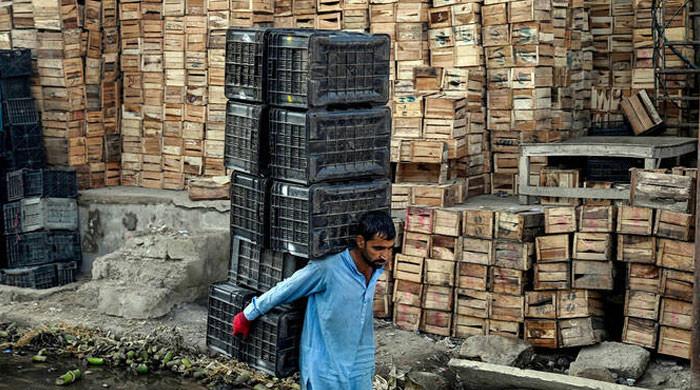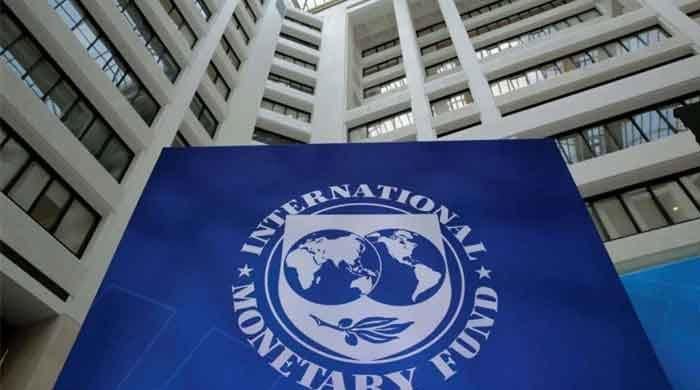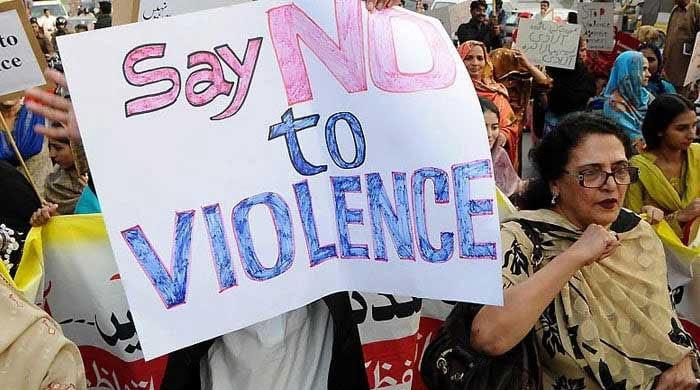Sons of Zayed vs sons of Jinnah
UAE's leadership has empowered its citizens, and Pakistan’s leaders must do the same to inspire youth to proudly identify as "sons of Jinnah"
December 01, 2024
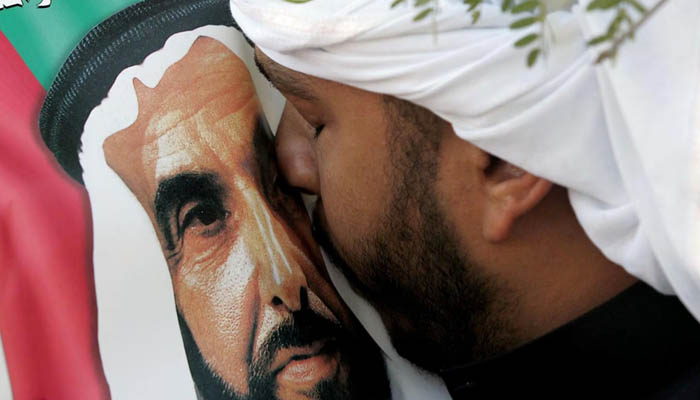
How does the United Arab Emirates (UAE) continue to rise? What makes it so unique that its economy is booming? Why is it the top tourist destination in the Middle East and North Africa?
And most importantly, what lessons can we learn from this success story?
The Ambassador of the UAE to Pakistan, Hamad Obaid Ibrahim Salem Al-Zaabi, beautifully summed up the answers to all these questions in one sentence.
He was in Karachi to mark the 53rd anniversary of the UAE's foundation. Standing next to Sindh Governor Kamran Tessori and Consul General Bakheet Ateeq Al Romaithi at the Press Club roundabout, Al-Zaabi said their country is “grateful to the vision of Sheikh Zayed bin Sultan Al-Nahyan,” the father of the nation.
Unlike Quaid-e-Azam Mohammad Ali Jinnah, who founded Pakistan but, unfortunately, died too soon, Sheikh Zayed not only established the Emirates but also set the direction for the nascent country by developing leadership and the nation. He primarily focused on health, education, the economy, and security.
Thanks to those efforts, over the last five decades, the UAE has gradually emerged as a tolerant, inclusive, stable, and multicultural society, which is home to over 200 nationalities. It thrives on a diversified economic model.
For these reasons, it has repeatedly defied pundits who predicted that the UAE's economy was a bubble that would eventually burst.
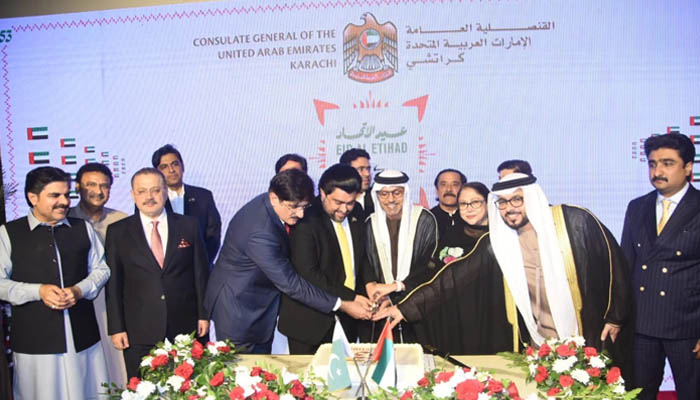
The question is: how did Sheikh Zayed, better known as "the wise man of the Arabs," achieve this?
In the early 1970s, Sheikh Zayed foresaw how the region would develop. As the ruler of Abu Dhabi (1966–2004), he paved the way for the unity of the seven states.
When Great Britain announced its withdrawal from east of the Suez and the Gulf in 1968, Sheikh Zayed convinced Dubai's then-ruler, Sheikh Rashid bin Saeed Al Maktoum, that the region’s survival depended on forming a federation.
His idea acted as a magnet. On December 2, 1971, six adjacent regions —Abu Dhabi, Dubai, Sharjah, Ajman, Umm Al Quwain, and Fujairah —emerged on the global map as the United Arab Emirates. Two months later, Ras Al Khaimah joined them.
Gradually, this area, once merely a fishing and pearl diving hub, transformed into a financial centre.
Despite extremism taking root in the neighbourhood, Sheikh Zayed kept Emirati society moderate and tolerant.
A few months after 9/11, Sheikh Zayed famously said: “Muslims stand against any person of Muslim faith who will try to commit any act of terror against a fellow human being. A terrorist is an enemy of Islam and humanity, while a true Muslim is friendly to all human beings and a brother to other Muslims and non-Muslims alike. This is because Islam is a religion of mercy and tolerance.”
Through consensus and consultations, Sheikh Zayed laid the foundation for a smooth transfer of power and a clearly defined role for all. No wonder the UAE came to a standstill when the "wise man of the Arabs" passed away in 2004.
Sheikh Zayed bin Sultan Al Nahyan was also a friend of Pakistan, which was the first country to recognise the UAE. He enjoyed cordial relations with Shaheed Zulfiqar Ali Bhutto, Pakistan's former prime minister.
This connection became more evident when Benazir Bhutto chose to spend her political exile in Dubai instead of London and often praised Sheikh Zayed’s role in uplifting the Emirates and helping Pakistan.
According to the World Population Review, the UAE's total population stands at 11.2 million. Despite this, a recent social welfare programme for low-income citizens allocated AED 28 billion (approximately $7.6 billion).
Unemployed citizens receive up to AED 5,000 ($1,361) per month, housing allowances of AED 2,500 ($680), and university education allowances of around AED 3,200 ($870) for outstanding students. Locals also benefit from significant subsidies on fuel, electricity, water consumption, and 75% of food price inflation.
Where does this money come from?
The UAE is among the top 10 oil-producing countries, and its oil sector is projected to grow by 7.8% next year. However, it has also capitalised on its strategic location between Asia, Europe, and Africa.
Long before the so-called "Green Revolution," it began diversifying its economy by reducing reliance on oil-based products.
The UAE has successfully marketed itself as one of the world’s best tourist destinations, hosting over 15 million tourists annually. It is increasingly becoming a hub for information technology and financial services. As a result, last year, the UAE’s non-oil trade reached a record high of $953 billion.
This year, the International Monetary Fund projected real GDP growth at 4.0%, and the World Bank predicts it will rise to 4.1% in 2025.
A simple comparison between Pakistan and the UAE is telling. According to the State Bank of Pakistan (SBP), Pakistan’s total liquid foreign reserves stand at $16.1 billion, whereas UAE national banks reported reserves of $103.3 billion at the end of January 2023.
It is no surprise that, by some measures, the UAE passport has emerged as the world’s strongest, while Pakistan ranks 101st.
The UAE boasts a 93% literacy rate, while Pakistan has 25.3 million out-of-school children—36% of its total population of 71 million children. Shockingly, this is more than twice the UAE's total population.
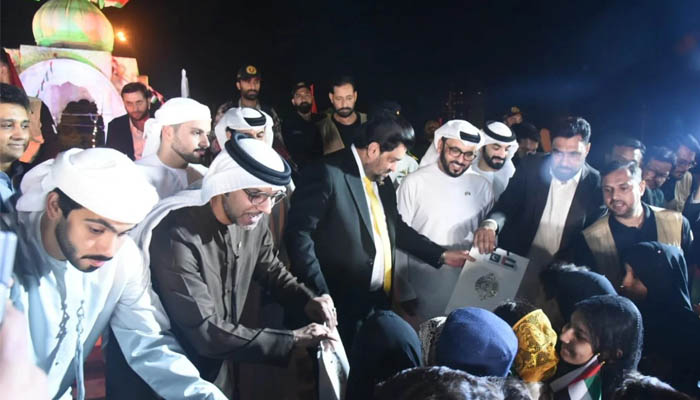
So, what is the way forward for Pakistan?
According to Ambassador Hamad Obaid Ibrahim Salem Al-Zaabi, who has spent eight years in Pakistan, this country has immense potential. He emphasises the importance of investing in youth, education, technology, and health. Al-Zaabi says, “Pakistani youth are talented. They only need a chance to grow with their potential.”
In a nutshell, the founder of the UAE and his successors have provided opportunities for every Emirati citizen to prove their worth. That is why every citizen of the UAE calls themselves a "Son of Zayed."
It is the responsibility of Pakistan’s leaders to do the same so that the youth take ownership of the country and proudly call themselves "Sons of Jinnah."
The author is Controller News at Geo News. He posts on X at @NasimHaider2 and can be reached at [email protected]





